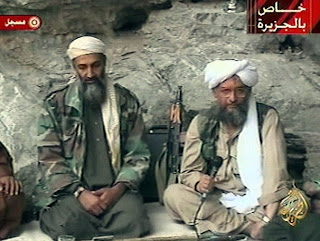Unlike most of the country, it was a fairly warm day in the state where I’m from on September 11, 2001. I was fourteen years old and about a month into my freshman year of high school. My grandfather’s 60th birthday was approaching that October and we were planning to fly the whole family out to San Antonio, but my grandma is terrified of flying. I, being the aviation and space nerd that I am, had been trying to convince my grandma for weeks that flying is perfectly safe, even more so than driving, I had graphs and everything! I hated the sound and the incredibly rude awakening of traditional alarm clocks, so I had recently set my TV in my bedroom to wake me up at a certain time, and had it set to the Today Show because it was usually pretty upbeat.
Needless to say, when I woke up that morning there was nothing upbeat about the coverage. It was shortly after the first plane hit, and we still didn’t know quite what was going on. I was angry and cursed at the pilot for being dumb enough not to see the massive building in front of his plane, and proceeded to go take a shower. When I came back, the second plane had already hit, and I immediately felt like a dick for saying what I’d said before I got in the shower. I was worried about the Statue of Liberty, the White House, and other important areas being hit, and I felt helpless to stop any of it from happening. I saw the first tower come down right before I had to leave for the school bus, where I heard about the Pentagon & the second tower coming down over the radio. At this point, my fear of what else might happen turned to anger towards those who would do something like this, and I was ready to go punch a terrorist in the throat. I was mad that I was only 14 and couldn’t join the military and disgruntled with the response by adults everywhere telling me to just go about my business (how could I care about French tests & normal teenager things when people were trying to kill us?), so I joined my high school’s ROTC program, and on September 11, 2004 I finally took the oath of enlistment.
Since that fateful morning nearly ten years ago, we have been a nation at war. We swiftly identified the culprits of the attack, and sent our military to wipe them off the face of the Earth. It has taken close to ten years, and the lives of thousands, but we’re finally getting close to wiping out al-Qaeda in Afghanistan. According to Defence Secretary Leon Panetta, “we’re within reach of strategically defeating al-Qaeda.” Al-Qaeda is an organisation that was largely designed around the charismatic personality and leadership style of Osama bin Laden, which is somewhat lacking as of late (perhaps because we killed him). In his place, now stands a man named Ayman al-Zawahiri. Those who have known Zawahiri have described him as arrogant, extreme, and even a jerk, and experts suggest that he will have a difficult time holding the fledgling organisation together if he cannot pull off another large-scale terrorist attack. Aside from his obvious personnel problem (that he’s not bin Laden), he must remain isolated, and can’t even use a courier system to communicate with his subordinates (because we caught his predecessor that way). Not to mention that many of the intelligence professionals who have spent the last ten years hunting for bin Laden are now hunting for him, and nearly killed him in an airstrike earlier this year.
It would seem then, that al-Qaeda is a thing of the past, but anyone who tells you that would either be lying or clearly misinformed. Al-Qaeda as we knew it on September 11, 2001 is effectively severely crippled, and could potentially be dismembered in its traditional sense in its main operating areas of Pakistan and Afghanistan in the near future if we hold our present course. However, in its place we will have an “al-Qaeda 2.0” so to speak. We already see al-Qaeda in the Arabian Peninsula (AQAP), al-Shabaab, the Pakistani Taliban, and others taking their place. We’ve cut off one head, and in its place, several smaller heads have sprung up. Essentially, it boils down to the fact that we are at war with an idea, and you cannot defeat an idea unless you can prove that it is no longer relevant or sustainable.
It is for this reason that our more recently adopted tactics of using surgical strikes in Yemen, as opposed to invading with 100,000 troops, and using the police, FBI, Justice Department, and Homeland Security to improve general security and prevent terrorist attacks are our best bet moving forward. These tactics will cost fewer lives and fewer dollars in the long run, and are less likely to propagate the conditions on the ground that cause people to want to become terrorists in the first place. It is still important that we finish what we started in Afghanistan through military action, diplomacy, and humanitarian aid, but it is highly unlikely that we will leave that nation with anything looking anything like a developing and sustainable future. However, more important than finishing our war in Afghanistan, we must remain committed to this less invasive approach at counter-terror operations.


No comments:
Post a Comment